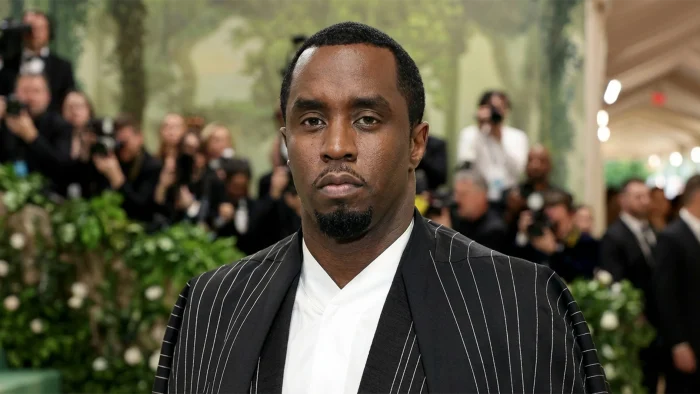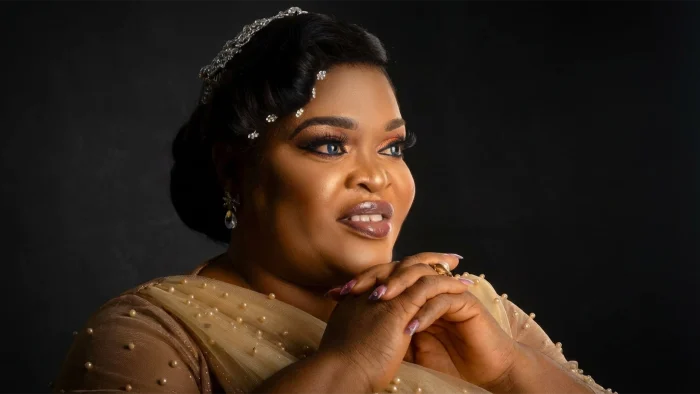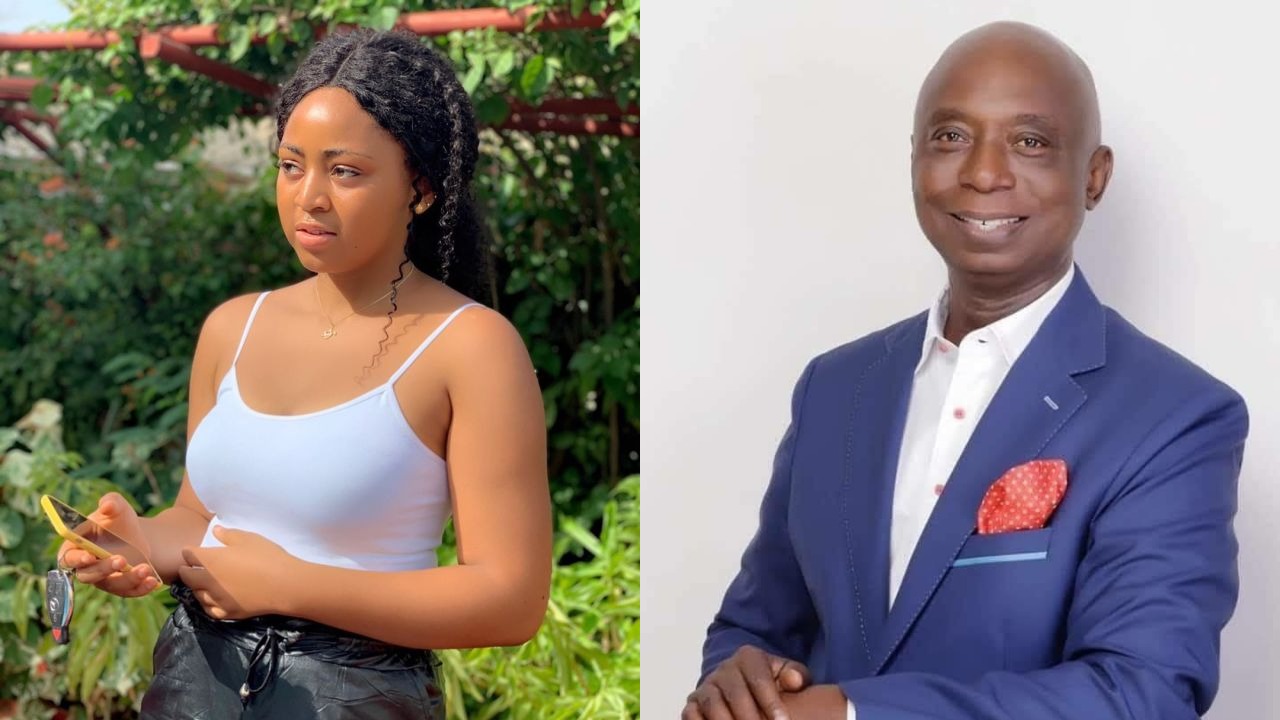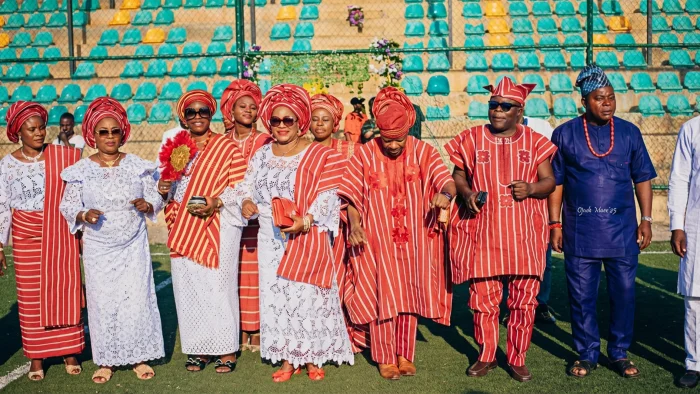On a regular day in Major AJ’s life, he’s either out shopping, dining with friends, filming cameos on movie sets, or raving with the rest of Lagos’ adrenaline junkies.
[ad]
His social media logs reveal how living in the moment keeps him grounded as a creative. And that’s precisely the spark he’s trying to ignite with BadBoy Major, his just-released sophomore extended play set to emphasise his distinct artistry in the Afrobeats scene.
[ad]
When Major AJ, born Boluwatife Ajogwu, joined the Chocolate City Music label in 2022, his debut EP Retroverse, packing viral hits like Omnirascal, and Taboo, showcased his musical dexterity with a fusion of electronic dance music, Pop, R&B, and indigenous funk.
READ ALSO: Why your child should learn a musical instrument
His journey from playing instruments and singing in his childhood church choir in Niger State to saving up ₦3,000 from all his school allowance over six months to record his first song—a cover to D’jinee’s Overkillin’—Major AJ’s ascent has been intentional. His professional moniker honours his late father.
[ad]
On his latest seven-track EP, he continues on that path, featuring Crayon on Kere, infusing his reflections and optimism into rich compositions that feel more cheery and cohesive. Blending influences from Westlife, The Jackson Five, Ebenezer Obey, Fela Kuti, Lil Wayne, and more, Major AJ’s come-up has been rich with experimentation. Now, with fan favourites like Consent and More Money on the new EP, he is shaping his legacy with tales of joy and harmonious pop-fusions.
In this week’s Guardian Music, he offers insights into his latest musical exploits, his muses, his creative process, and memorable moments from becoming Bad Boy Major—a symbol for present-mindedness—and his desire to ascend to the summit of his career.
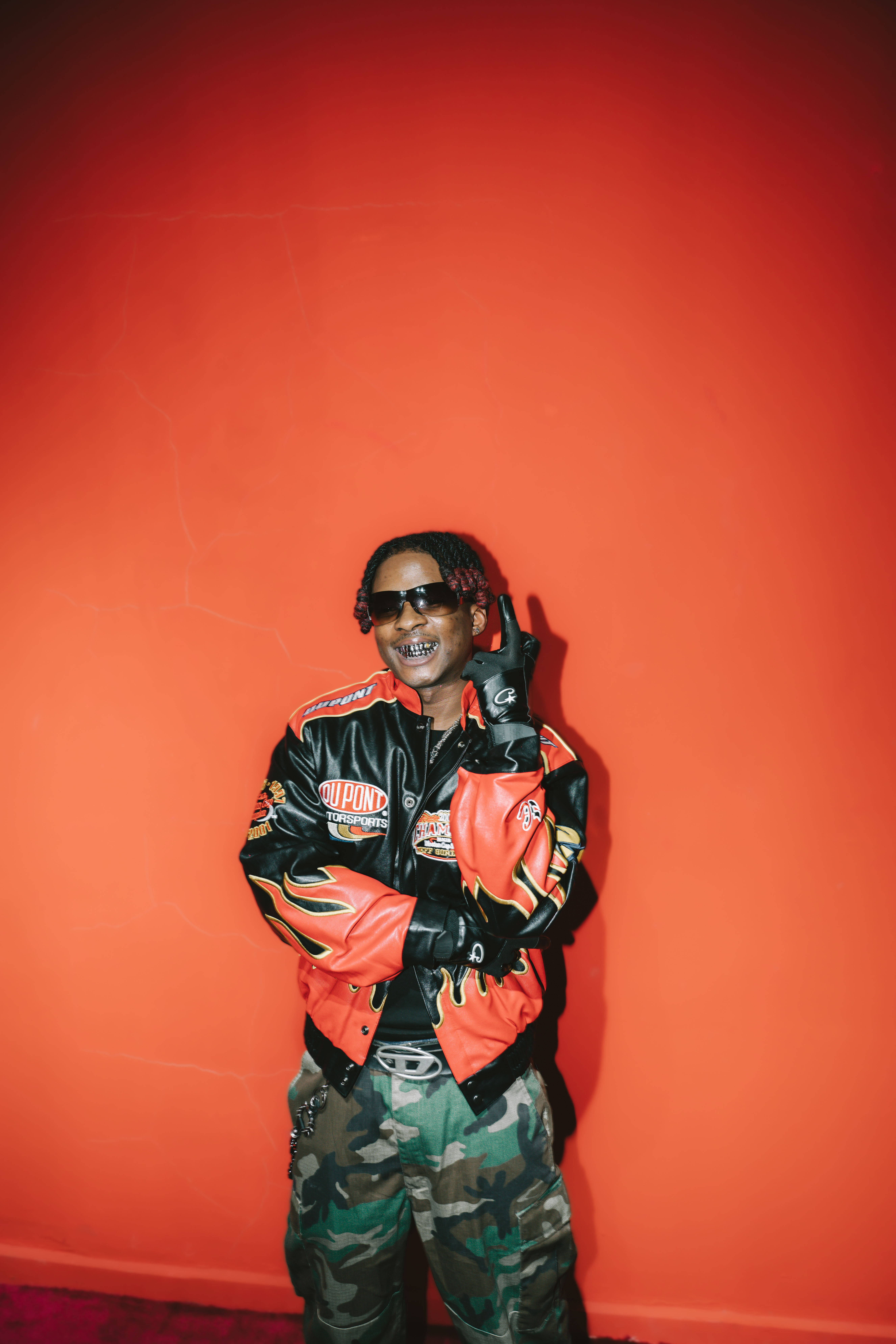
[ad]
When did all of this begin for you?
I grew up in Kainji, Niger State. There were little to no resources to do music—no studios, nothing! I always went with my mum and aunt to choir practice in church. I became fascinated by musical instruments and learned how to play the drums and piano. I started singing in church. As time went by, I realised it was what I loved. As a kid, music was fun. I had friends dedicated to playing football and running around the school. For me, it was music.
My friend and I used to rap and freestyle. We had a group, but one day I just knew that music was my calling. In the song, Superstar, I mention seeing a vision of me on stage performing, with people singing along. It was like a spiritual thing. I started the journey, and God has been aligning it. I am happy I get to do what I love as a profession.
The first song I ever recorded cost ₦3000 for the recording session. I had to save for it over six months. I used to get a ₦50 allowance to school, daily, so I tried to save ₦20 each day. The song was a cover of Djinee’s Overkillin’. My family was not having it at all. They liked music, but when I started saying I wanted to do it for a living, they were not smiling. My mum kept emphasising school. But in the end, everything justified the means. My mum is a big fan now. I just got off the phone with her before this interview; she called to ask how everything was going.
[ad]
How did you come up with the name Major AJ?
When I started my career, I had many names—some were quite corny. I wanted a name that meant something to me. One person that means so much to me in the world is my dad. He was in the military, a major. I lost him when I was very young. I wanted a name that connected to him. Everyone called him Major Ajogwu. So, I coined the name Major AJ from that, to always carry him along on this journey.
What’s the new project all about?
The BadBoy Major project is about my journey so far as an artist since my first project, Retroverse, which dropped two years ago. There have been ups and downs, and I’ve learned a lot. I’ve gotten more confident in how I sound and more self-aware. This project touches on different topics—from my issues with women and love to family, parties, and that lifestyle. It touches on gratitude. It’s about where I am mentally at the moment as an artist. It’s all about self-belief and self-confidence. I’m telling people that I’m at a stage where I’m very sure of myself as an artist.
[ad]
Did you have any thoughts to modify your sound at all?
Most times, when I’m creating a project, I don’t intend to sound a particular way. I create music based on how I’m feeling. But you can see the difference in vocal textures. I’m doing a lot of pop fusion, including Fuji, and I’m here to party. I think my strength as an artist is my versatility. I like to try new things, infuse new elements and and dabble a little. On this project, I focused more on myself in terms of the writing. I’m focused more on what I’m saying, but you can still see me mix up different styles.
Tell us about your session with Crayon.
So I recorded Kere last year while preparing for the project. I had just met with the producer for the first time. We all knew the song was a banger; it was giving grass-to-grace vibes, and Crayon is that kind of person. His whole story is about “small boy, big God”.
[ad]
I just knew he was the perfect feature for the song. At that time, I knew him, but we weren’t close. I texted him, and after a while, he heard the record and liked it. He told me he was busy then, so I had to wait until around the middle of this year. As God wanted it, everything fell into place when I was about to submit my EP to the streaming platforms.
Any other highlights from making this project?
One of the top moments I can remember was recording Consent. I went to the producer’s place; I had already written to a beat, but I couldn’t record that day. I took the beat home and recorded the song one morning when a lot of my guys were in the house. My studio was in the dining room then, so they heard what I was recording. They loved the song. For all my guys to connect to the record that well, I knew it was a smash. Another moment was recording Kere. I really enjoyed that session.
[ad]
What’s next for you?
I think it’s an album. I’m the artist who will take my time making an album. A good album can have a strong impact on your legacy. But there’s definitely more music coming. I’m a major, I’m a soldier, so I can’t give all my tactics out.
What do you think about rivalries in Afrobeats, and how is the unity among artists from your breakout set?
To be honest, it’s normal as humans to have differences. But with the new generation, there’s been a lot of love. I show my fellow younger artists love, and I’ve met a lot of artists who showed me love too. I feel like love is the best policy at the end of the day. I don’t think beefing is good. I always want to spread positivity. With this new generation, we are cool, showing love, and everyone is just trying to do their stuff. But I know there’s always going to be rivalry, because, in reality, we’re human beings.
[ad]
What is the vision for your career?
My vision for my career is to be as big as God wants me to be. I don’t want to be an artist that you interview now but never hear about again. I want to be the artist selling out stadiums. I want to be so great because music is what I love to do. So, I just want to be the best I can be, create a legacy, change my family’s life, and take it to the very top.
[ad]


